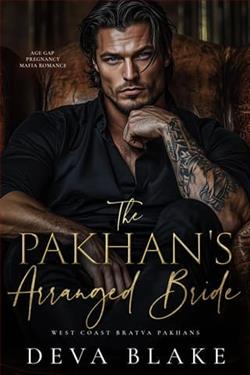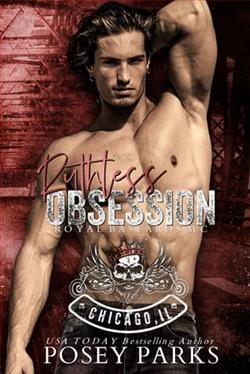Page 82 of Holmes, Margaret and Poe
“I have nothing to do with these men,” he said, taking the coffee. “The refugee agency placed us there. They were already renters when we come.” Shariff said the men had all worked in various roles with the U.S. military, often as support staff. Abdallah, as we knew, had been a fixer for Special Forces. The two dead men in Abdallah’s house had worked in a mess in the Green Zone in Baghdad. Kourie Mustapha and Umar Hassan, he said, had worked on the border with Syria. He could notremember what the two other dead men had done for the U.S. in Iraq, but it had gotten them preference for refugee status when America pulled out.
“What about you, Mr. Shariff?” I asked.
“I am an engineer,” he said. “I worked on construction projects for the U.S. Air Force and the Army Corps of Engineers in the south of Iraq.”
“And here?”
“I work for an engineering and construction company in Germantown. I just start there six months ago. Already they have promoted me twice.”
Mahoney nodded. “Abdallah?”
Shariff blinked several times. “He is nice man sometimes. But he tried to get us to attend his mosque there. I told him we were not ready to decide such things.”
“That make him mad?”
“It made him suspicious of us, I think,” he said. “They all became polite, and we could talk about our families and our lives back home. But we were not friends.”
I said, “Did you know they had the automatic weapons and the body armor?”
He shook his head, looking us in the eyes. “I had no idea. I was sleeping when the shooting started and I panicked, thought I was back in Fallujah. I never … ” Shariff choked up.
“You never?” I said.
He cleared his throat, wiped at his eyes with his sleeves. “I never thought I would experience this kind of thing here, in America. I thought we had left that behind us.”
“It’s still a great country,” Mahoney said.
Shariff’s chin rose. “The best. Every day, we give thanks for being allowed to live here, to raise our daughters here.”
I slid my phone across the table. “Have you ever seen this man visiting Mr. Abdallah or his friends?”
For several moments, the Iraqi refugee studied two pictures of the late Leslie Parks, one taken during his time in Iraq, the other more recent. He tilted his head, as if trying to get another perspective on the photos.
Finally, he said, “He’s stiff on one side? Bad right arm?”
I glanced at Mahoney. Parks had been shot through the right arm when his convoy was attacked.
“Maybe,” Mahoney said. “When was he here? How many times? For how long?”
Shariff said he’d first seen the man the same week they’d moved in. He’d arrived in a dark blue van with North Carolina plates. Abdallah had come out on the front deck of his house and greeted Parks like a long-lost friend.
“I am still moving things from our first place with the U-Haul,” Shariff said. “So I am in and out all that day. He stayed maybe one hour and then he comes back the next afternoon. But this time, he backs van into driveway and goes to the barn. He is there maybe two hours, then he leaves.”
Mahoney said, “You don’t go over there? See what’s going on?”
“I was putting up the swing and putting together the tricycles for my daughters.”
“Then what?” I asked.
“He goes.”
“And you remember him clearly?”
“Yes. He rubs his arm. It’s bad.”
I changed the photo on my screen to one of Marion “Captain” Davis. “What about this man? He ever come there?”
Shariff studied the picture. “No. Who is he?”















